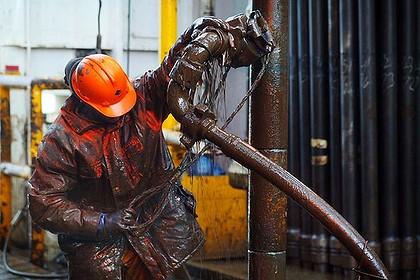
U.S. CUTS BUDGETS

Some of the largest U.S. shale oil producers have already begun slashing 2016 budgets, with some planning double-digit reductions starting next January, the latest sign low crude prices are forcing a radical adjustment in the industry.
A rash of bleak commentaries from CEOs this week marks one of the earliest times in a calendar year that oil producers have laid out rough sketches for the following year's spending.
Gone, for now at least, are the high-rolling ways of an industry that as recently as last year was flush with cash. Here to stay, it seems, is constant belt-tightening, though executives still think they will be able to pump more oil.
In all, North American oil companies should cut their budgets by as much as 15 percent next year, analysts at Barclays estimate.
"No cost is too small for us to scrutinize," Marathon Oil Corp Lee Tillman told the Barclays Energy Power Conference on Wednesday. "We continue to be laser-focused on reducing costs across all areas of our business."
Marathon, which operates in North Dakota and Texas, said it would trim at least 18 percent of its capital budget next year - more than $600 million - by cutting the number of wells it fracks, among other steps.
Executives at Anadarko Petroleum Corp and Apache Corp hinted strongly they could take cuts of their own.
"If we do stay in this lower-for-longer scenario, we're going to see (2016) become a very different period than we would have anticipated," Al Walker, Anadarko's CEO, said at the conference.
Searching for a metaphor for the downturn, Walker quoted a friend saying: "It is going to rain for a long time. We are all going to get wet, and a few people are going to drown."
Analysts expect the most acute pain at very small firms, not the big independents.
Still, cuts are happening. Apache has cut 20 percent of its staff this year and has begun looking for a joint venture partner to help develop its Montney shale acreage in Canada, a sign that the company is looking to spread financial risk.
WPX Energy Inc, which is spending $825 million to $925 million this year, could cut that to $700 million to $800 million next year, Chief Executive Rich Muncrief said Wednesday.
Chesapeake Energy Corp CEO Doug Lawler told investors at the conference on Tuesday that maximizing liquidity and preserving the company's ability to generate cash were near-term priorities.
"How we deploy our cash in the next few years will be very important," said Lawler, adding that he was prepared to cut capital spending next year.
It is an expectation slowly becoming reality across much of the U.S. oil industry, with many suppliers now realizing their own bottom lines are in jeopardy.
"We believe our customers will take a conservative approach to their 2016 budgets," Paal Kibsgaard, chief executive of Schlumberger NV, the world's largest oilfield service provider, told the conference on Wednesday.
To be sure, budget cuts don't necessarily mean that oil output will drop, with productivity of drilling rigs and frack crews jumping in the past two years.
Cimarex Energy Co said new processes to complete wells have helped it extract 64 percent more oil in New Mexico than had previously been available, a staggering jump that points to how nonchalantly the industry had spent money and overlooked efficiencies when oil prices eclipsed $100 per barrel, roughly $55 above current levels.
Continental Resources Inc slashed its 2015 budget on Tuesday and said 2016 should not be markedly different, but still forecast that oil output will rise at least 19 percent this year.
Only those U.S. shale producer who have heavily hedged production for next year, and less than half of the 30 largest did so according to a Reuters analysis, are voicing optimism and even increasing spending.
"We'll probably be one of the only companies increasing our capex going into 2016," said Pioneer Natural Resources CEO Scott Sheffield.
-----
More:





